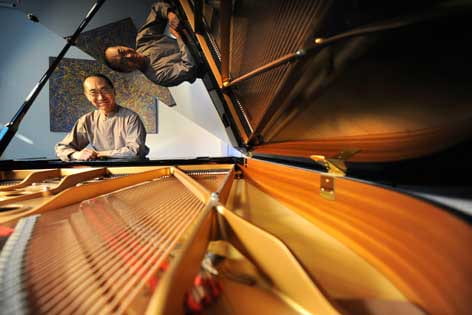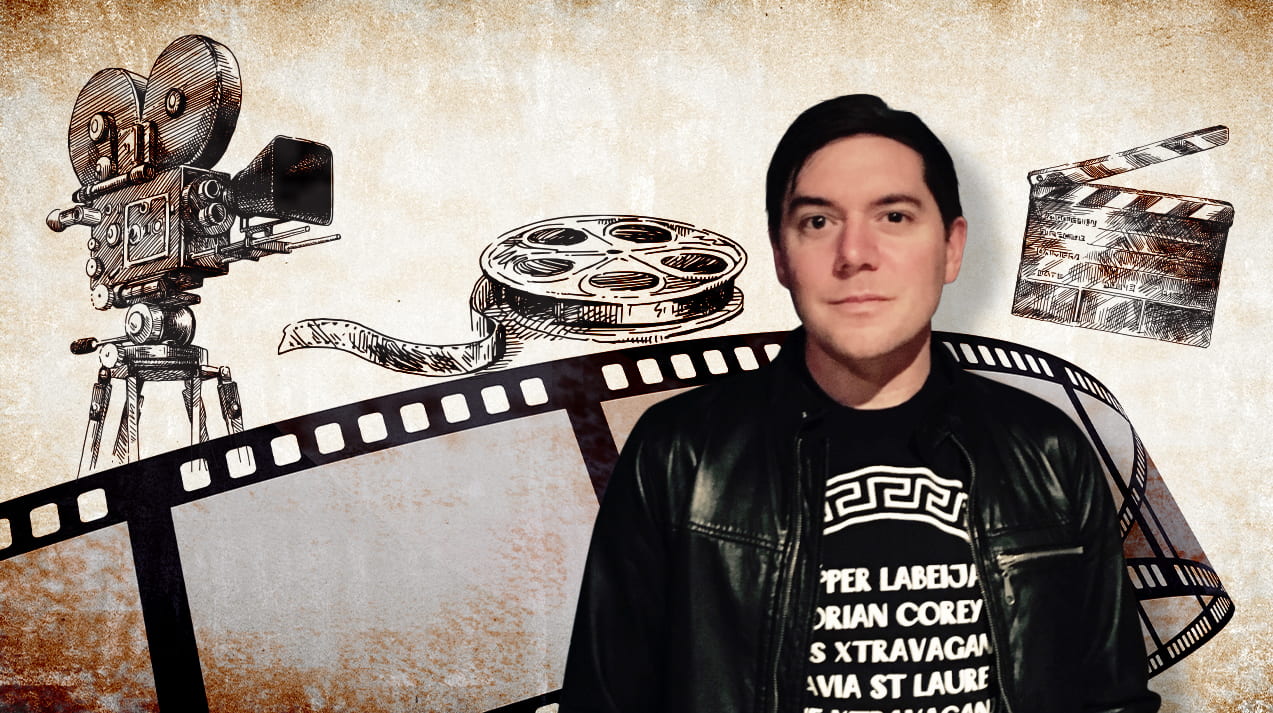Kei Akagi, master of improv
Jazz pianist, composer and teacher connects with people through his music.

Kei Akagi was 24 and pursuing a doctorate in philosophy at UC Santa Barbara when he decided music was his true calling. It was 2 a.m., he’d just finished performing with his jazz band, and he suddenly realized he hadn’t done any work on a graduate presentation due the next day.
“I sat down in my tiny little apartment and thought, ‘What do I really want to do in life?'” Akagi recalls. “It took all of maybe five minutes to decide.”
He called his professor the next morning to say he wasn’t coming back to class — ever.
Today, Akagi is a world-renowned jazz pianist and composer, Chancellor’s Professor of music and director of jazz studies at UC Irvine’s Claire Trevor School of the Arts. He will host “An Evening of Jazz with Kei Akagi & Friends” Jan. 22 and 23 at Winifred Smith Hall.
Critics, he says, have described him as a post-bop modernist, but he considers himself simply a jazz musician who plays with an awareness of tradition — while pushing the envelope. “I try to see how far I can take jazz without it becoming a different kind of music entirely,” Akagi says. “That’s always been the challenge.”
In addition to creating his own music, he has performed or recorded with other leading jazz artists. He played with legendary jazz trumpeter Miles Davis’ band from 1989 to 1991 and can be heard on his last recordings.
“Of all the artists I’ve worked with, he’s the only one I can say without qualification was a genius. His very way of perceiving music was utterly different, completely nonlinear,” Akagi says. “I’m still trying to assimilate some of the lessons I learned from him.”
Akagi has recorded 12 CDs as a solo artist and leader and has played on at least 40 others as a sideman and accompanist. He has performed more than 500 concerts with Tokyo Trio, formed in 2000 on a trip to his native Japan.
While critics praise Akagi’s technical prowess and avant-garde compositions, he says his main goal is to convey human warmth to the audience. “It seems as if warmth is lacking in the way art is sometimes pursued,” he says. Akagi remembers playing in Shiogama, Japan, in 2003 just one week after a 7.0 earthquake had shaken the town:
“I said to my musicians, ‘You know, these are people who haven’t had a decent night’s sleep in the past week. They’ve been sleeping in their cars; they’ve lost their homes. Maybe we need to take that into account in terms of how we present our music and what we feel when we play.’ The performance that night was very energetic, positive and — I hope — uplifting.
“I don’t believe in such a thing as music existing in isolation.”
Akagi gives a major faculty recital each winter through the UCI Chamber Series. He has played with the UCI Symphony Orchestra and performed in the Gassmann Electronic Music Series and Dance Visions.
Since starting UCI’s jazz studies program 10 years ago, he’s strived to teach the discipline of jazz while allowing students the freedom of self-expression. Jazz “is a very personal art form,” Akagi says. “If you have five musicians — even if they play the same composition — they’re supposed to express five world views.”
The key lesson he hopes to share with his students?
“For everything you learn, there’s a completely different way to do it,” he says. “So taking chances, learning from mistakes, is all part of an artist’s maturing process. If you’re afraid of making mistakes, you’ll never accomplish anything in art.”
